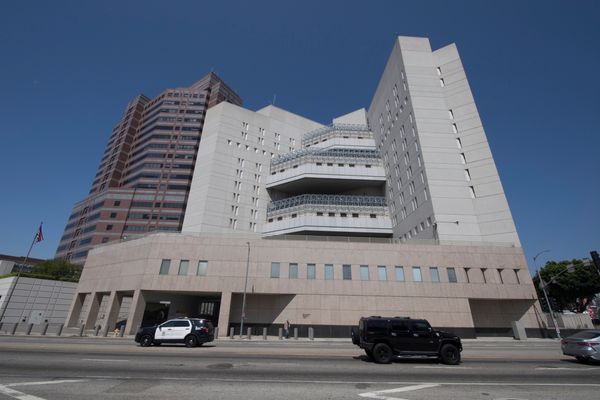The fear of Federal Reserve interest-rate increases have helped send stock and bond prices down in recent months.
The S&P 500 has slid 6% so far this year, and the 10-year Treasury yield has climbed 115 basis points.
But for the Fed to get inflation under control, the carnage will have to get worse, William Dudley, former president of the New York Federal Reserve Bank, wrote in a column on Bloomberg.
Consumer prices soared 7.9% in the 12 months through January.
“To be effective, [the Fed] will have to inflict more losses on stock and bond investors than it has so far,” he said.
The Fed’s policy affects the economy by affecting financial conditions, Dudley notes.
“So far, the Fed’s removal of stimulus hasn’t had much effect on financial conditions,” with stocks and bonds not moving that much, he said.
“Financial conditions need to tighten,” Dudley said. If this doesn’t happen on its own (which seems unlikely), the Fed will have to shock markets to achieve the desired response.”
Jamie Dimon Weighs In Again
Meanwhile, JPMorgan Chief Executive Jamie Dimon referenced the Fed’s impact on financial markets in a recent letter to shareholders.
He thinks the Fed may have to put the pedal to the metal.
“I do not envy the Fed for what it must do next: the stronger the recovery, the higher the rates that follow,” Dimon said. “I believe that this could be significantly higher than the markets expect.”
The Fed began its rate hikes last month, with a 25-basis point move. And many in the market expect a 50-basis point increase next month.
Interest-rate futures traders price in a 76% probability of at least 225 basis points more of rate increases this year.
The Fed’s rate increases “will cause lots of consternation and very volatile markets,” Dimon said.
“The Fed should not worry about volatile markets unless they affect the actual economy," Dimon said. "A strong economy trumps market volatility.”
So What's Next For The Fed?
So far, the Fed hasn’t put the hammer down.
“By gradually dialing up the rhetoric, [the Fed has] allowed markets to recalibrate to this new monetary regime without an excessive tightening of financial conditions,” Diana Amoa, chief investment officer at Kirkoswald Asset Management, told the Financial Times.
As for the impact of Fed rate hikes on stocks, you may be surprised to learn what has happened in the past.
Going back to 1989, during periods of Fed rate hikes, the S&P 500 generated an average return of 62.9%, according to Dow Jones. So perhaps stock investors don’t have to get too worried about the Fed.







